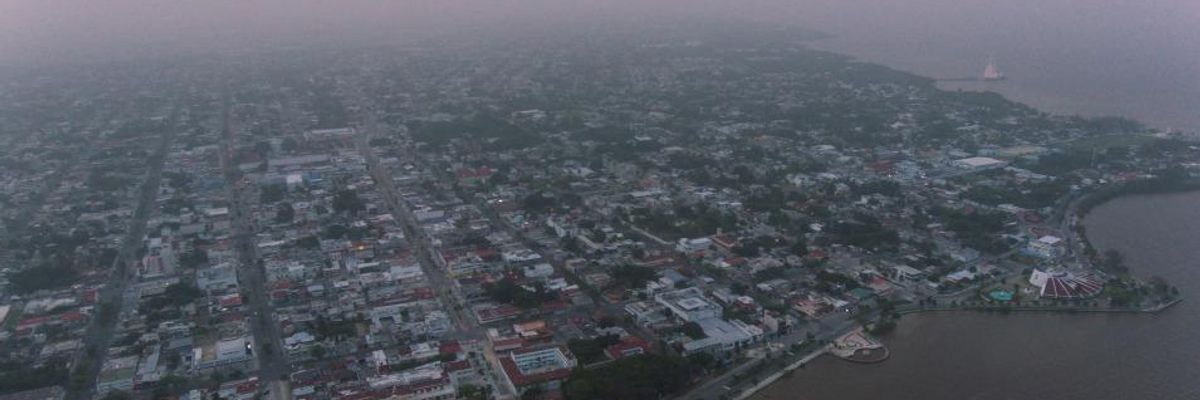The health effects of a dust plume which is expected to reach some southern states this week from the Sahara Desert are likely to be exacerbated by the Trump administration's response to the coronavirus pandemic and the resulting overstrained U.S. healthcare system.
The dust cloud is the result of a naturally-occurring phenomenon known as the Sahara Air Layer, which forms each year between June and August over the Sahara Desert in Africa. This year, several small storm systems over central and western Africa caused a number of dust storms to develop, leading to the creation of a large dust plume.
Scientists say the plume that has begun drifting towards North America, thousands of feet over the Atlantic Ocean, is the largest that's been recorded in half a century.
The plume reached Puerto Rico earlier this week, and high levels of dust in the air have been recorded in Mexico and throughout the Caribbean.
Astronauts at the International Space Station tweeted over the weekend that they could see the plume.
The cloud is expected to reach Texas, Louisiana, Florida, and other southeastern states by Thursday--bringing with it the risk of air pollution warnings in parts of the country where cases of the respiratory virus Covid-19 are currently surging.
The plume could drift toward mid-Atlantic states over the weekend, according toCNN.
As Common Dreams reported in April, studies have shown since the pandemic began in March that high levels of air pollution can exacerbate respiratory conditions.
Researchers at the T.H. Chan School of Public Health at Harvard University examined data about harmful particulate matter such as dust in 3,080 counties across the country over the past 17 years and compared pollution levels with the counties' death rates thus far from Covid-19, the respiratory illness caused by the new coronavirus. The study found that people living in areas with high levels of particulate matter were 15% more likely to die if they contract Covid-19 compared to people living in an area with less air pollution.
"There is some emerging information that people who live in places with higher levels of air pollution may be at higher risk" of Covid-19, Gregory Wellenius, a professor of environmental health at Boston University, told NBC News on Wednesday.
In Barbados, officials issued a Severe Dust Haze Warning on Wednesday as the plume blanketed the island, asking residents with respiratory conditions to take shelter.
Hurricanes and tropical storms may be tempered by the formation of the unusually large dust cloud, as storms need moisture to form. However, with healthcare resources stretched thin in states including Florida and Texas due to the pandemic, Wellenius told NBC, the plume along with other extreme weather events this year may leave those affected without the healthcare they need.
"Things like the wildfire season, hurricane season, and extreme weather events, including this dust storm, may be magnified this year," he said.
Hospitals across Florida are reporting that their ICU beds are full, and the number of hospitalized Covid-19 patients in Texas has reached record highs every day for nearly two weeks. On Wednesday, The Guardianreported that Houston hospitals weere near capacity.
The Republican governors of Texas and Florida, Greg Abbott and Ron DeSantis, have echoed President Donald Trump's calls for Americans to return to their daily routines even as cases of Covid-19 have been on the rise.
